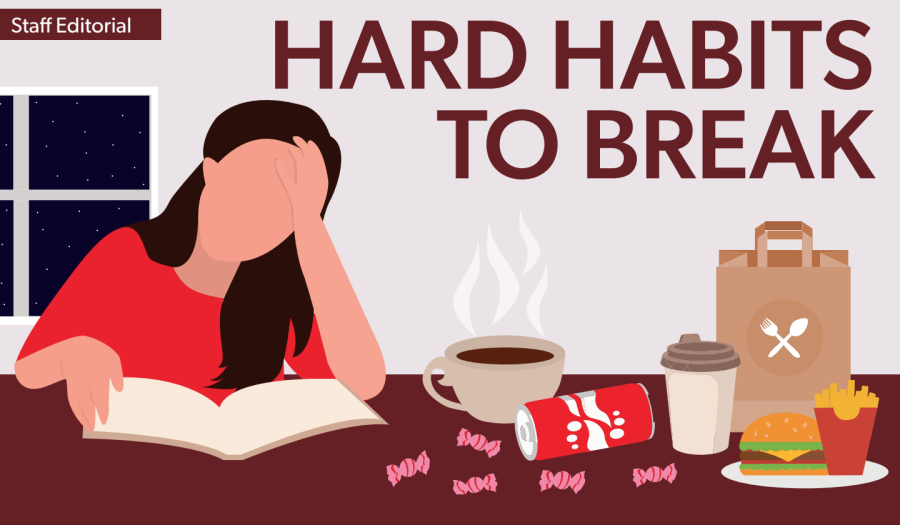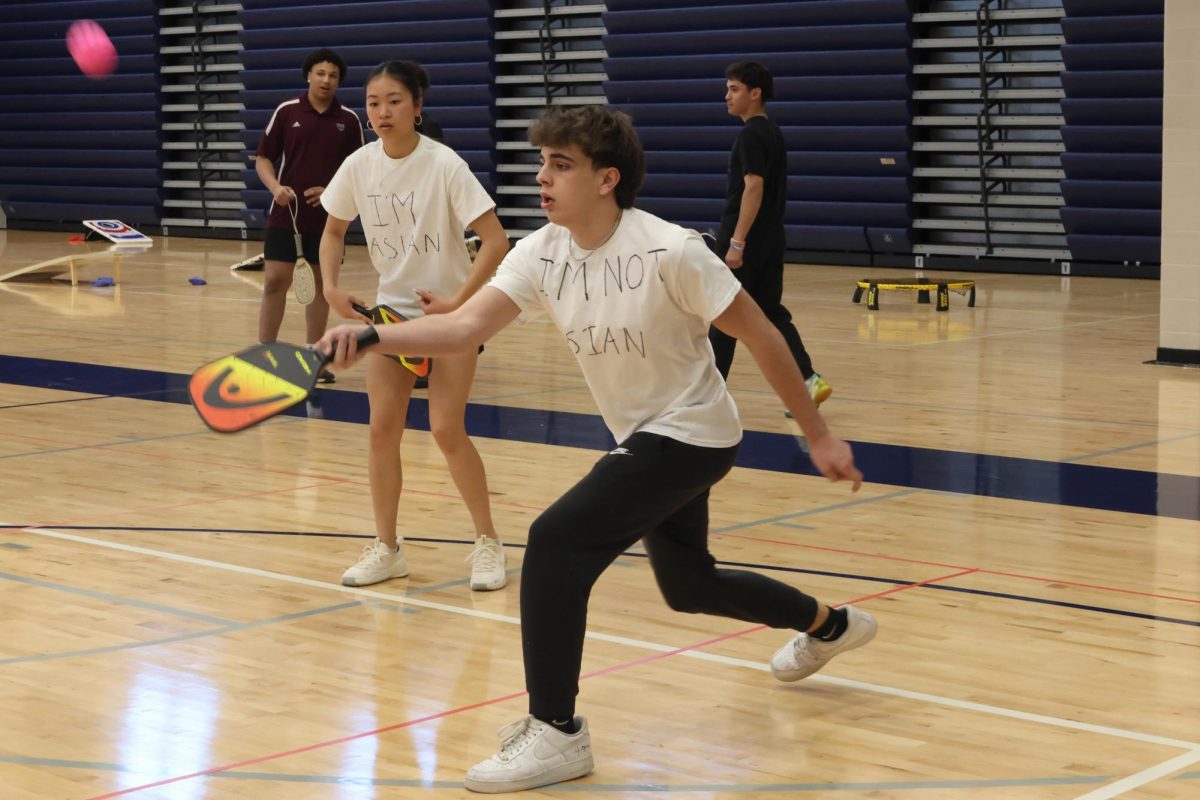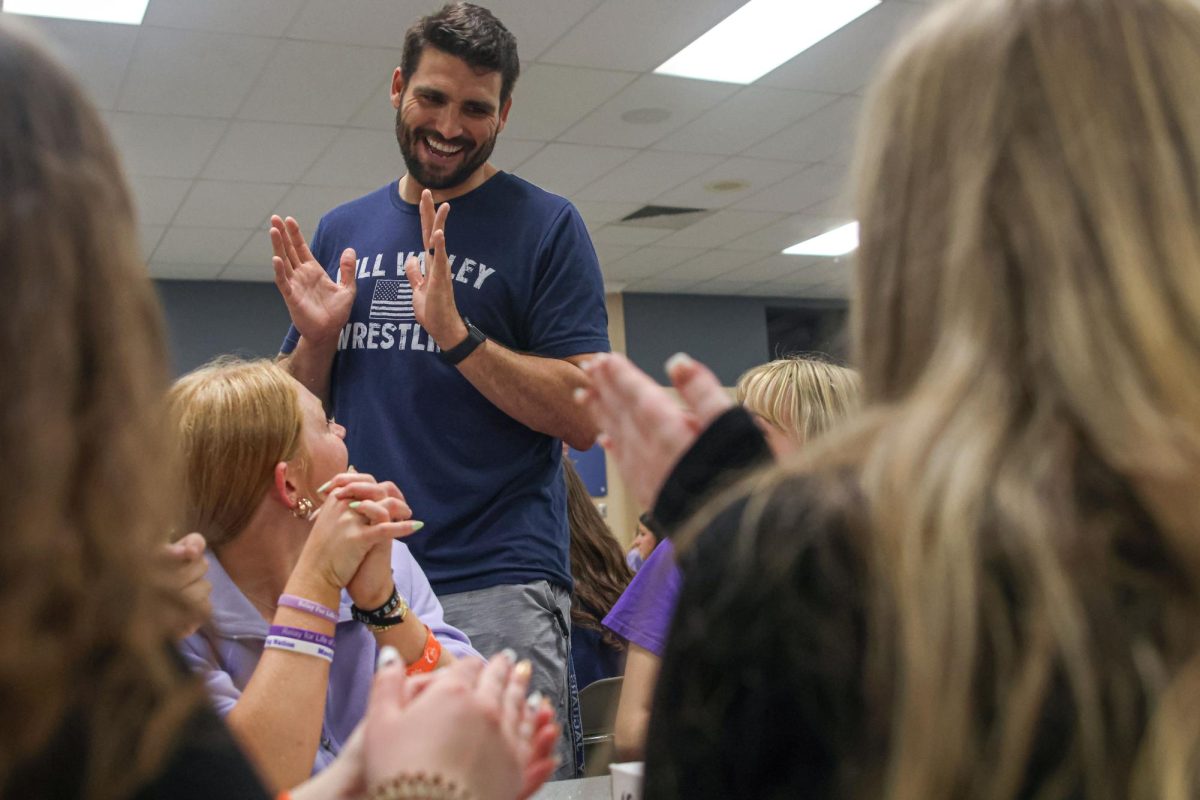Staff Editorial: Recognizing poor health habits can be the key to adopting healthier ones
Adults can help teens to have healthy habits by modeling them in their own lives
By Chloe Miller
There are many things that teens and adults alike can do to tackle unhealthy habits and put themselves on a path toward healthier practices.
March 20, 2023
It is no secret that many teens struggle with maintaining healthy habits. With adults expressing concerns about things like a lack of sleep, caffeine addiction and unhealthy eating habits to no avail, it can seem like teens are not aware of the problem. But for many students, the real issue isn’t the habits themselves, it’s finding a solution.
It is an unfortunate truth that many bad habits are frequently glamorized among teens. Most teens are acutely familiar with the competition for who can get the least amount of sleep while still functioning. This kind of rhetoric, though, normalizes the problem rather than normalizing working toward solutions.
According to a 2011 National Sleep Foundation poll, by the time U.S. students reach their senior year in high school, they are sleeping an average of 6.9 hours a night, down from an average of 8.4 hours in the sixth grade. The Sleep Foundation explained that this problem is confounded by an increase in caffeine consumption, which is shown to make “you fall asleep later, sleep less hours overall, and make your sleep feel less satisfying.”
In an article by Medical News Today, a study said that 83.2% of teenagers consume caffeinated beverages regularly. With this knowledge, it would make sense that teens are having issues with sleep. Furthermore, many teens find themselves having to stay up later or making fast food runs just to save time.
The CDC found that during a study conducted from 2015 to 2018, children and adolescents consumed on average 13.8% of their daily calories from fast food. This is up 4% from 2010. These common fast food habits create a vicious cycle that can have serious health issues down the line.
Teens should acknowledge the consequences of bad health and feel empowered to make changes to these habits because they know it is good for them. This doesn’t mean they should criticize bad habits, it means that they should be working against glamorizing them and taking small steps toward healthier lifestyles.
Adults can help by modeling these changed, healthier habits for the teens in their lives. They can also help spread awareness of the consequences of excessive caffeine, fast food intake and of a chronic lack of sleep.
There are many things that teens and adults alike can do to tackle this problem. Actively recognizing bad habits and working to create a more positive conversation around their consequences is vital to living healthier lives.












